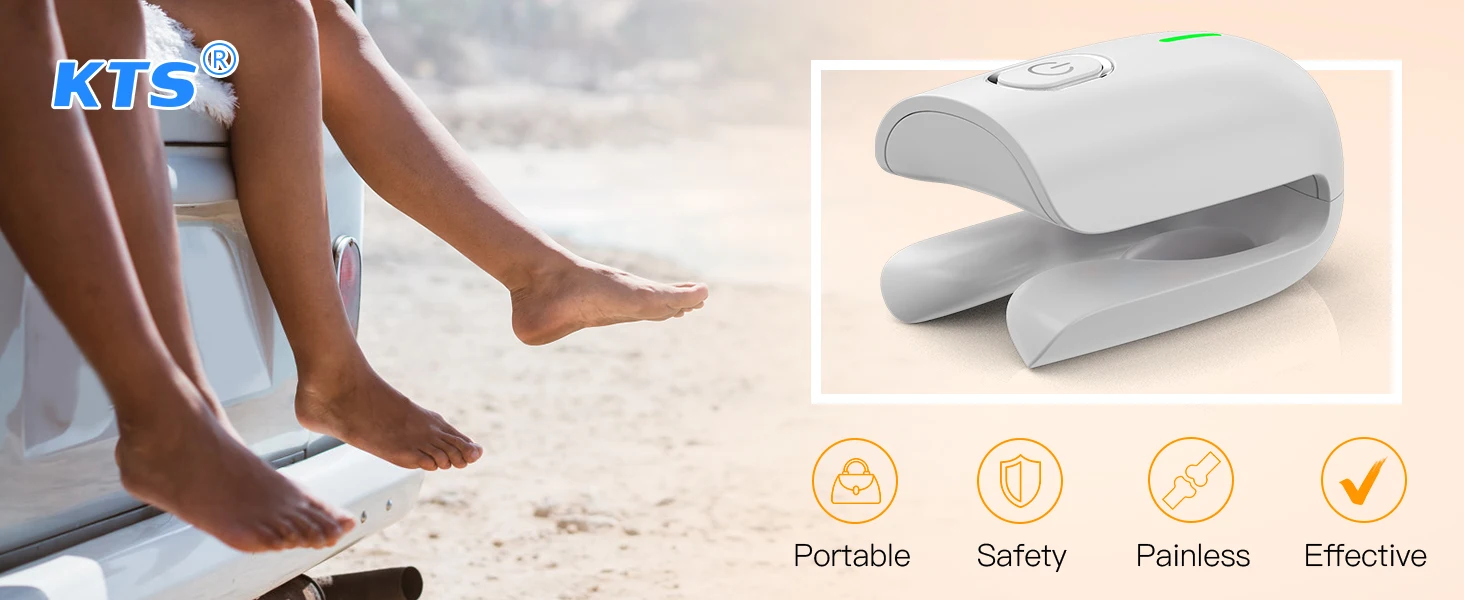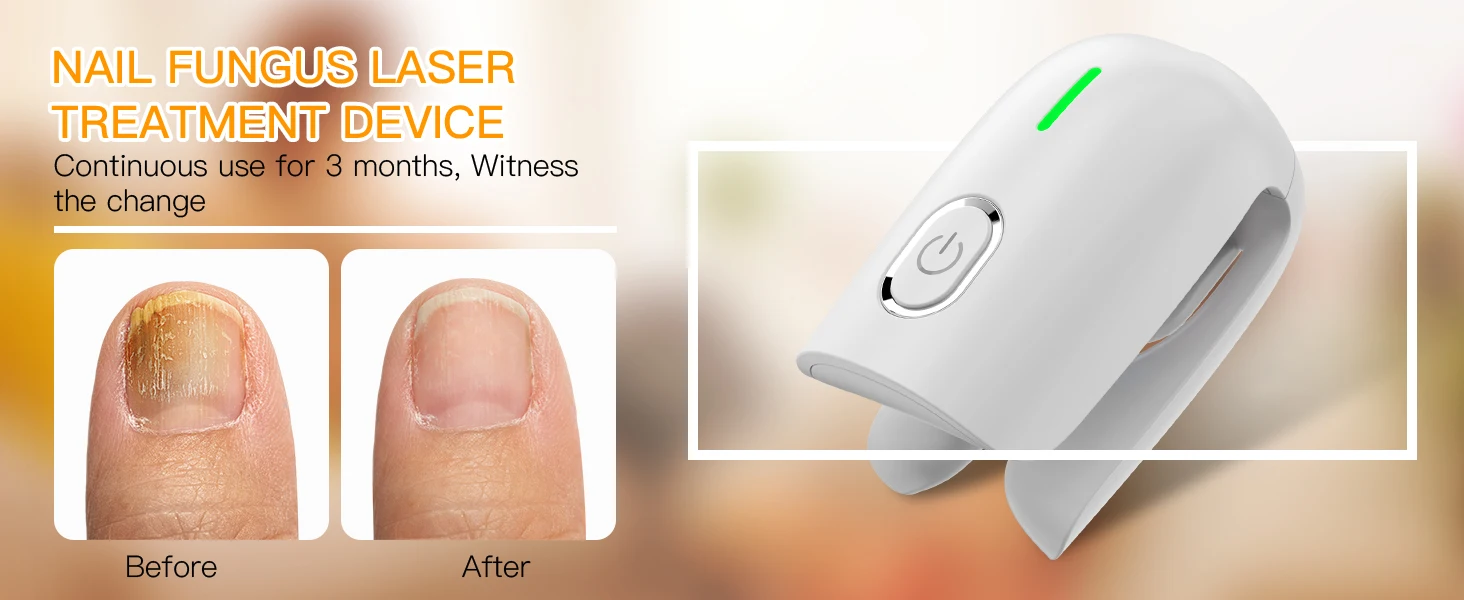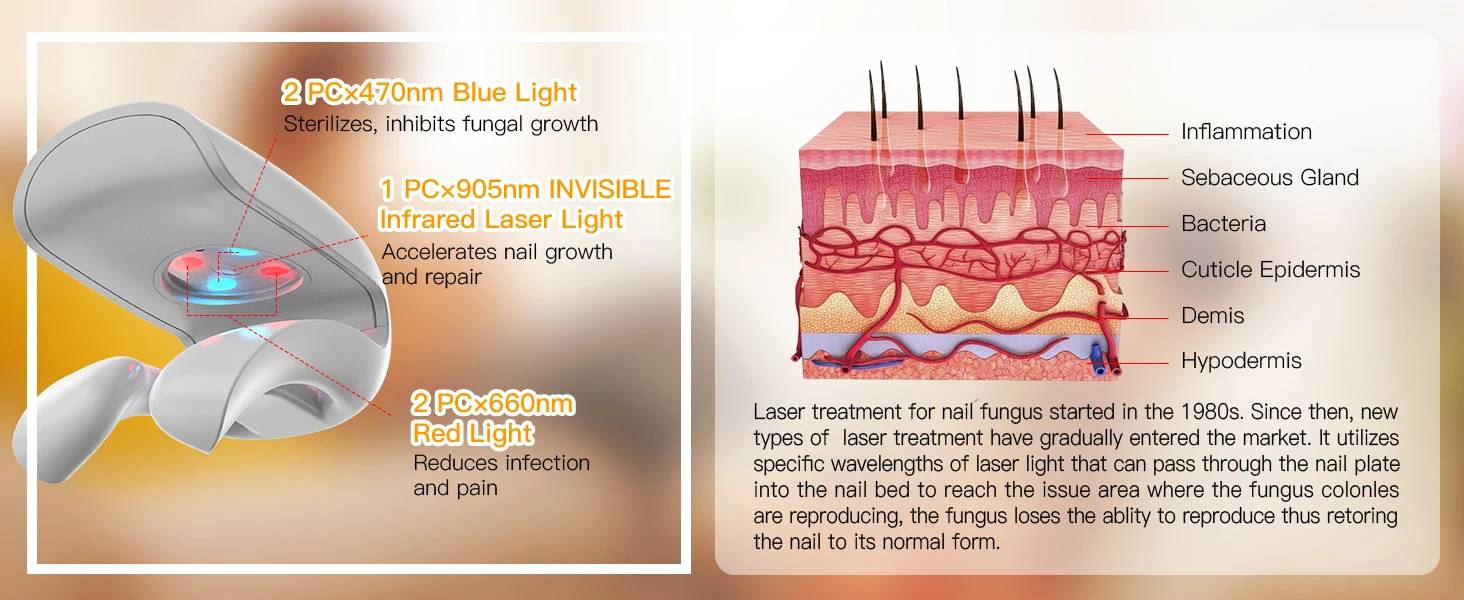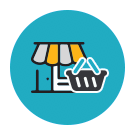KTS Nail Fungus Laser Device Toenails Cleaning Devices Fungal Nail Laser Device Onychomycosis Care 470nm 660nm 905nm Infrared
In stock
$37.99 $115.99

Highlight:
-
Light weight and small enough, you can easily carry around.
-
Use it at comfort of your home.
-
Very easy to use, no need special skills.
-
Need to use it no less than 7 minutes a day.
-
No side effect.
Technical Information:
Laser Wavelength: 905nm
Blue light wavelength: 470nm
Red light wavelength:660nm
Laser intensity: 25W
Maximum pulse intensity: 22W
Adapter Specification:
Voltage: 5V
Rating: 5V DC
Max: 0.5A
Charging time: 3-4 hours
Input: 100-240V 50/60Hz 0.2A
Usage instructions:
It must be done on a daily basis.
It should be done at least once a day.
Operating Instructions:
1.Place the device on the nail and press the operating button.
2.Light will begin to blink and the device will emit visible blue light.
3.The device will operate for 7 minutes and shut off automatically.
What is onychomycosis?
Onychomycosis, also known as tinea unguium, is a fungal infection of the nail. Symptoms may include white or yellow nail discoloration, thickening of the nail, and separation of the nail from the nail bed. Toenails or fingernails may be affected, but it is more common for toenails to be affected.
It occurs in about 10% of the adult population. older people are more frequently affected. Males are affected more often than females. Onychomycosis represents about half of nail disease.
What is the harm of Onychomycosis?
Onychomycosis affects the overall beauty of a person, harms health, damages one’s own image, and causes deformities of the fingers and toes, and it will become more and more serious!
Onychomycosis can easily lead to various fungal infections, resulting in serious skin diseases such as hand, foot, tinea corporis, tinea cruris, and erysipelas. After female onychomycosis has a 95% chance of causing serious gynecological diseases such as fungal and candida
And most of Onychomycosis is caused by fungal infection, which is CONTAGIOUS and easily spread to FAMILY, FRIENDS, ESPECIALLY CHILDREN(because the children’s resistance is weak).
Why choose Laser Treatment?
At present, the main methods of treating onychomycosis include: external medication, internal medication, surgical removal of nails, and laser treatment.
1. Topical drug therapy is safer, no pain, no side effects, but it takes up to 12 months and the effect is not obvious, the cure rate is low, generally about 13-30%.
2. Oral drugs: Antifungal drugs can reach the parasite where the fungus is parasitic before they can exert their antibacterial effect. The medication lasts for 6-12 weeks, and there are side effects and risks (liver toxicity). Blood tests are required before and during the medication. In addition, some oral antifungal drugs can react with other drugs, and they must be verified and screened before taking them. The cure rate of internal medicine is 60-70%, and onychomycosis may recur after stopping the medicine.
3. Surgical nail removal: suitable for single onychomycosis, under local anesthesia, remove the affected nail. This method has large wounds and bleeding, which can easily cause infection. After the operation, it is generally painful, and it is easy to reinfect and recur.


| Color | Grey |
|---|
Based on 0 reviews
Be the first to review “KTS Nail Fungus Laser Device Toenails Cleaning Devices Fungal Nail Laser Device Onychomycosis Care 470nm 660nm 905nm Infrared”
General Inquiries
There are no inquiries yet.







There are no reviews yet.